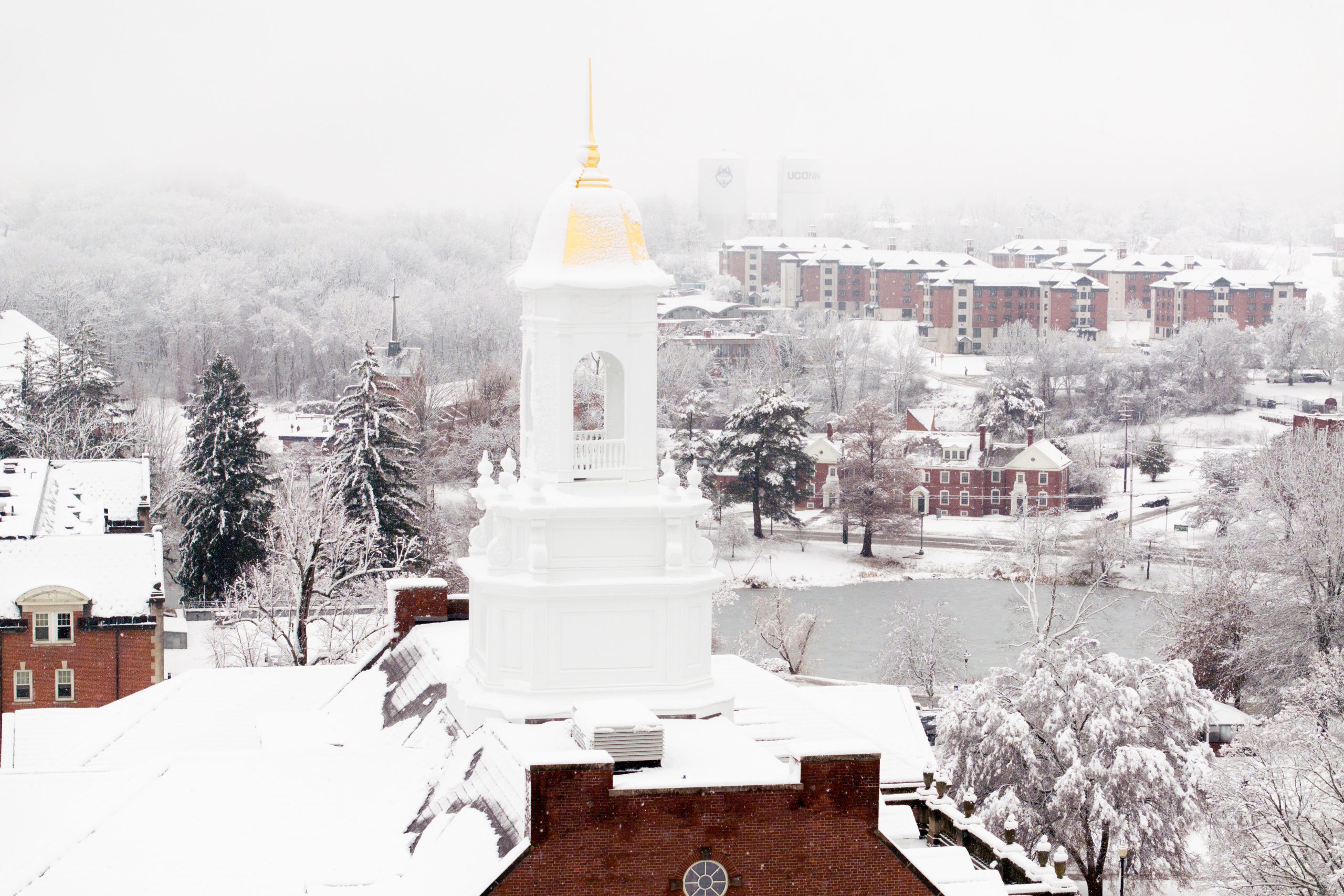Alumnus Douglas Shidler (B.S. Electrical Engineering, ’83) and his wife, Trish Shidler, have pledged funds to establish the Shidler Scholarship for Engineering. The scholarship will target full-time undergraduate engineering students who maintain good academic standing and are in need of financial support.
Summarizing his family’s philosophy, Doug said “There is a time to learn, a time to earn, and then a time to return throughout our lives.” The Shidler Scholarship for Engineering is emblematic of the family’s commitment to nurturing students as they strive to earn an engineering education.
 The seed for an engineering scholarship was planted five years ago, when Doug co-founded the FIRST (For Inspiration and Recognition of Science and Technology) Robotics program at Cheshire High School with two teachers from the high school. FIRST is a national program founded by innovator and entrepreneur Dean Kamen to foster interest in science and technology among high school students. The FIRST Robotics Competition challenges high school teams and their mentors to solve a problem, using standard parts and following a common set of rules, within six weeks. The Cheshire team competes annually in the UTC New England regional event.
The seed for an engineering scholarship was planted five years ago, when Doug co-founded the FIRST (For Inspiration and Recognition of Science and Technology) Robotics program at Cheshire High School with two teachers from the high school. FIRST is a national program founded by innovator and entrepreneur Dean Kamen to foster interest in science and technology among high school students. The FIRST Robotics Competition challenges high school teams and their mentors to solve a problem, using standard parts and following a common set of rules, within six weeks. The Cheshire team competes annually in the UTC New England regional event.
A practitioner with a passion for engineering outreach, Doug is committed to acquainting school-age children with STEM (science, technology, engineering and math) concepts in a way that makes these subjects fun and engaging. “Benefactors of a good engineering education need to take the next, important, step, of engaging high school kids in technology, science and math so they are inclined to pursue careers in these areas. As a country, we need to fuel the STEM pipeline very early to secure our national competitiveness,” he said.
During Doug’s years of mentoring the Cheshire High School FIRST program, the teams have ranged from eight to 20 students. The Cheshire team is one of three sponsored by Sikorsky, and Doug is joined by other Sikorsky colleagues who serve as volunteer mentors. He commented that, over time, he has witnessed the impact of the program in engendering greater long-term interest in STEM subjects. He is gratified to report that one former Cheshire FIRST team member he mentored several years ago is now pursuing a biomedical engineering degree, with a robotics emphasis, at a respected technical institute. Other FIRST students are taking similar educational paths in the technical arena.
Doug is Vice President for Marine Corps Programs at Sikorsky Aircraft. This unit includes the Presidential fleet and CH-53 heavy lift helicopters. Sikorsky was awarded the CH-53K heavy lift program by the U.S. Marine Corps in April 2006. The $3 billion development program involves from-the-ground-up design and development of the vehicles, which will be capable of heavy-lift operations, military transport, search and rescue, vertical replenishment, vertical onboard delivery, airborne mine countermeasures, advanced early warning, minesweeping, humanitarian aid and disaster relief.
He first joined Sikorsky in 1984, as an engineer in the controls in communications systems area. He advanced through a variety of positions within the Electrical Flight Controls Group, the Avionics Group and the Army Special Operations Group – where he ascended to Chief Engineer – and Chief Engineer for the Black Hawk programs. As Director of Air Vehicle Design (2000-02), he oversaw a team of approximately 1,000 employees responsible for all facets except avionics. He was named Vice President of Black Hawk Programs in 2002. He was responsible for all domestic and international ongoing Army and Air Force programs, including the upgrade version of the Black Hawk. He led a successful development program that culminated in a commitment by the U.S. Army to procure over 1,200 new UH-60M Black Hawks over the next 15-20 years.
Reflecting on his undergraduate years at UConn, Doug recalled certain faculty members who made an important impression on him, among them emeritus professor David Jordan, who remains active as the School’s Director of Undergraduate Advising. Perhaps the greatest lesson he learned during his years at UConn, he said, was that “It’s not necessary to memorize equations and formulas. I realized in my senior year that what is important about an engineering education is the process: knowing how to use those equations, where to find the information that will allow us to solve problems, how to enable the knowledge base… This process has helped me throughout my career.”
Doug was honored by the School of Engineering in 2006, when he was inducted into the University of Connecticut’s Academy of Distinguished Engineers for his exceptional career achievements and community outreach.

